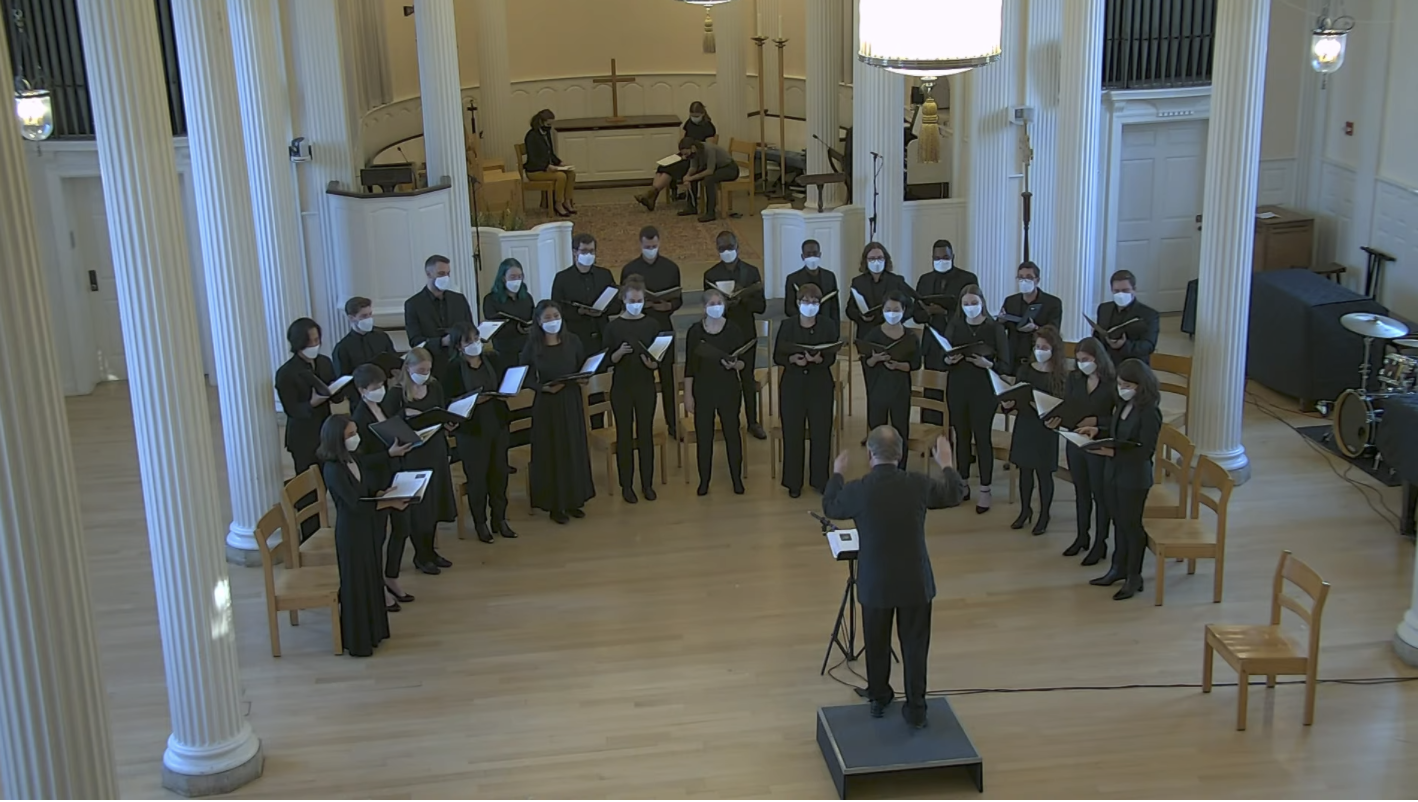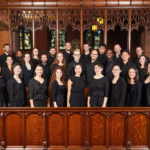Yale Schola Cantorum hosts virtual Evensong performance
On Friday, the Yale Schola Cantorum hosted its first in-person performance since 2019.

Lucas Gimbel and Keenan Miller, Contributing Photographers
On Friday, the Yale Schola Cantorum staged a virtual Evensong performance — its first concert of the 2021-22 season — at the Berkeley Divinity School.
Founded in 2003, the Schola is a chamber choir sponsored by the University’s Institute of Sacred Music. Friday’s Evensong performance, a ritual of sung prayer that originated in a 1549 Anglican prayer book, marked the group’s first show since 2019. David Hill, the Schola’s principal conductor, directed the show.
“We’ve all been learning how to create and celebrate community across great distances,” Andrew McGowan, dean of the Berkeley Divinity School, said in his opening remarks. “This service, drawing on ancient Christian practices of prayer and music from different periods, bridges history as well as space.”
The choir began its traditional Evensong performance with songs by composers including Charles Wood, Judith Bingham and Amy Beach. Between songs, audience members heard several short prayers and passages from the Book of Job and the Book of Matthew. To highlight the Schola, the performance included more music than traditional Evensong services do.
Hill explained that Friday’s Evensong was also a chance to include music by a diverse selection of artists. The performance spotlighted the work of several female composers –– including Judith Bingham, Amy Beach and Errollyn Wallen –– which, he explained, can be a rarity in Evensong.
Gloria Yin MUS ’22, an alto in the choir, said she was particularly excited to sing several pieces she had never previously performed.
“I really like the sound world that [Bingham] creates,” Yin said. “The way she builds up phrases and creates moods through harmony is a little gritty and mysterious. We have to use our voices in a more colorful way.”
Though the choir is able to meet, practice and perform together, public health restrictions still impact the nature of its rehearsal and performance.
“The masks are a little bit annoying,” Yin said. “But they don’t change the sound a great deal. It’s really just great to be singing together again.”
Hill echoed Yin’s words and explained that the masks are “designed for performance.” They are equipped with “more room between the nose and the lip and more space for sound and words.”
Though the event was closed to the public, it was live-streamed and is publicly available on the Yale Institute of Sacred Music’s website. According to Yin, the Schola looks forward to a season with a frequency of performances similar to that of pre-pandemic years, albeit with less travel and more collaboration with external groups.
Hill stressed that “this is only the start” for the Schola this academic year.
“This gets us going,” he said.
In October, the Schola’s principal guest conductor Maasaki Suzuki will lead another performance, and in November, the choir will take the stage at Woolsey Hall.








